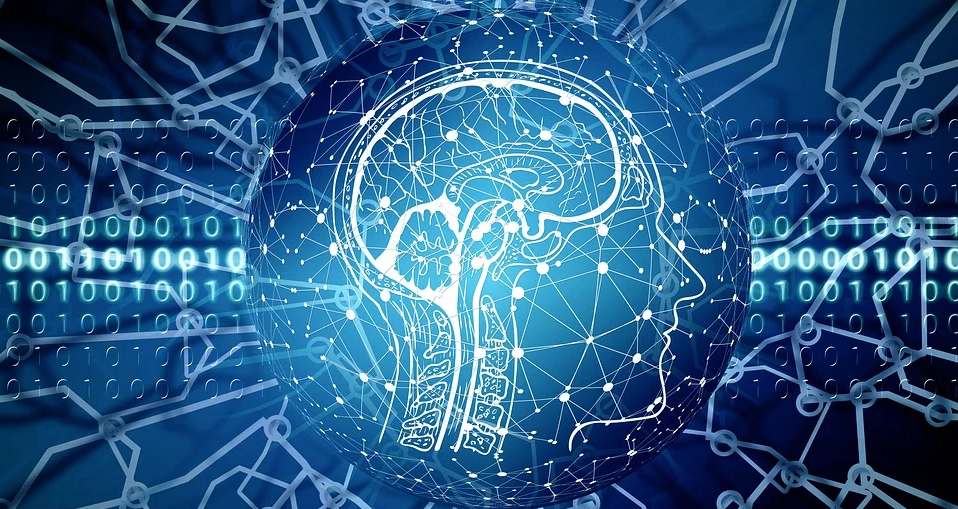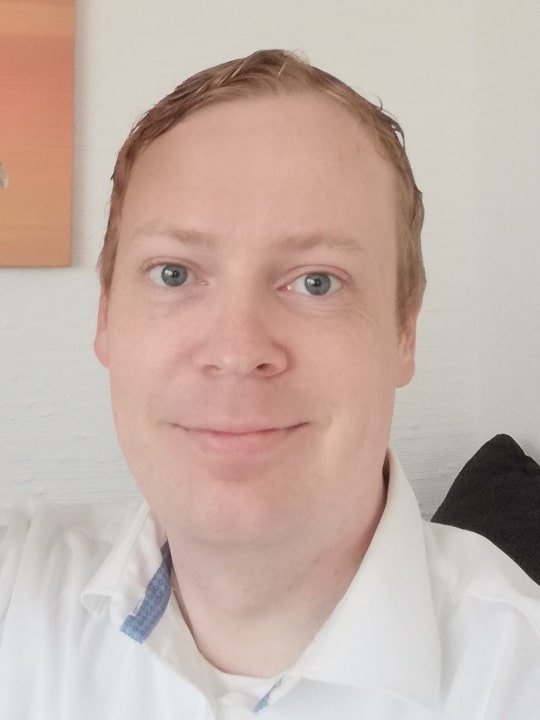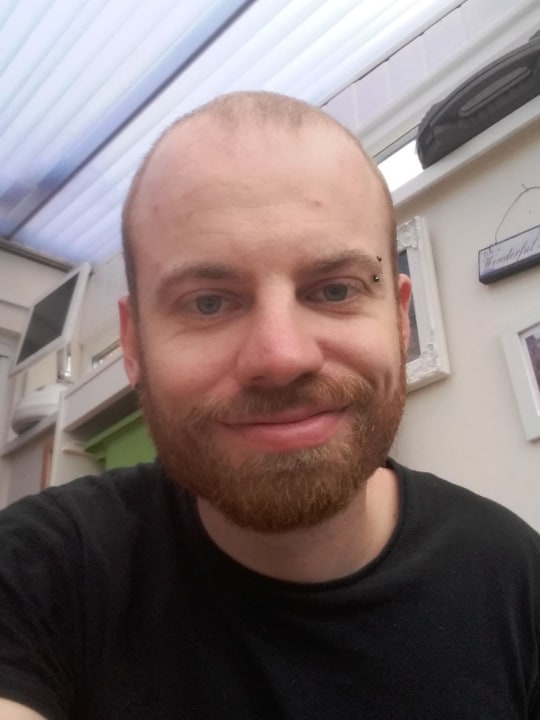In this episode Steven and William share their excitement for science-fiction as it pertains to self-awareness, free will and the difference between man and machine, if there is any. Will there ever be conscious
Watch a Short Excerpt:
Transcript (continued):
Steven: How long do you think it will be until conscious machines? Because, I mean, to be honest, I think it'll happen.
William: Uhm, I have a different view. I really enjoy the Australian philosopher David Chalmers on this topic. And I watched some of the interviews with him. And I can't say for certain, obviously, but I like how he says that no matter how complex machines get, no matter how many artificial neurons you put together in a network, you will never achieve the same kind of consciousness that humans experience. So he makes a hard difference, a strict difference between artificial intelligence and, I guess, natural intelligence. And so... Sorry?
Steven: The question there is... because we're machines in biology. We have electrical currents going through us. So ultimately we'll just come full circle, won't we? We will get to the point where through machine and biology we just combine the two to be able to make humans. Is that not...?
William: That's a popular view. That's right. I'm glad you raised that and not just go along with what I'm saying because, yes, a lot of people believe that we are just a biological machine.
Steven: Ok. Yeah, I don't know what I personally believe, but I'm just throwing in different viewpoints.
William: No, it's important that we mention especially the questions that a lot of people have. And this is a common question. What's the name of the English physicist who died recently? Hawking, Stephen Hawking. I read...
Steven: He passed away?! Wow. Sorry.
William: Yes. he did, a few years ago.
Steven: Oh my goodness. This is hilarious. I'm going to literally look this up because it's just... this happens a lot with me.
William: I miss a lot of stuff too but...
Steven: Yeah, March. Wow, yeah. Again, okay, with my health stuff, my memory and that. It's, yeah... I would have... The time I think...
William: He was just on the Big Bang Theory a few years ago.
Steven: Okay, I must have... Obviously I would have seen it. I would have known that he had passed away. Again. because of health stuff my memory, it's just gone.
William: Information overload? You can't go away?
Steven: I don't know what it was. My stupid health, he ability to retain memory at the moment...
William: Are you saying that you knew at one point and forgot?
Steven: Yeah, well I would have had, it would been on Facebook or whatever else I use. So I would have known, but the problem gets where you tell me, you said, he died. And I'm like "I can't remember", I'm like "okay, that sounds right", but there's no grounding in my brain where I can go. There is no point of reference. I remember hearing it at that point. So I question the reality of it just for myself, knowing you're right, but not having any context for myself.
William: That's confusing.
Steven: Oh, it can be it can be really difficult sometimes. Yeah, there's certain things, there's no rhyme or reason to it. Anyway, off-topic.
William: I mentioned Stephen Hawking because he was very popular. He was stubborn. But his views had a big influence on people. Anyway, he said... Every time he made a new discovery, or in science in general made a new discovery, he believed... he felt confirmed, so that his view became more likely to be true, which is that we are just matter in action and there's nothing immaterial behind it. He likes to say at the end of an explanation "and since we know now how this works there is no more need for God". Because, as you know, one reason that religion is popular is whenever people hit a wall with their explainability, with their knowledge on a topic they like to say "...and everything beyond that is up to God". Since our brains are so, let's go with finite,, and God's isn't this is something that he can understand that we can't. And I think that's true, you know, in a sense. But I like to think that God can tell us everything. So therefore nothing is really unaccessible. It just might not be in our control. We cannot always force progress or knowledge.
Steven: It's a way of just saying "etc., etc." or "and so on and so forth." We have got this point of knowledge that's as far as we can go at a specific period of time. And that's to be able to understand that we can't understand it yet. We can't assume it...
William: How can we know what we cannot know?
Steven: Yeah, we kind of submit and go "okay, well, sometimes ignorance is bliss. And we will get there at some point, but right now we don't." It's like there has to be an answer. Why can't it just put "dot dot dot, and just we'll get there eventually. Give us time."
William: Yeah, you know, a Black Swan might come along. And it wouldn't be a Black Swan if you expected it. So there are emergent... there are emergent phenomena like that where knowledge suddenly makes a leap.
Steven: Yeah.
William: But... I forgot how we got onto the topic.
Steven: Stephen Hawking, at the end of his statements...
William: So when scientists or people making discoveries or even people catching up on already existing knowledge, you know, knowledge that is in the human society already, when they catch up, and this happens to me too, I start noticing patterns in nature, and I say "wow this explanation is really good and explains this and this and answers this question I always had", and you get so confident that you start believing this can explain everything or it'll just be another five to ten years until we can explain everything. And that is not advisable, not careful.
Steven: I get very confused by the whole "looking for the one question that answers everything". I find it very ignorant and, again, it's just me being a kind of human being with not much knowledge of anything, really. But I find it very strange because at any given point something can prove a situation, and then time goes by, something happens which contradicts that. It doesn't change the other thing, it doesn't change that at that point the proof that was a certain way... Again, it's proof. It's not just a theory. Life is contradictory. It's paradoxical. There is a Dune quote. I won't go into it. It talks about how paradox is just an entertaining thing. People that get wound up in paradox need to chill out. That's the Steven way of interpreting the quote because actually paradox is just part of existence. And so why... and contradiction... why do we need to suddenly say that was wrong and now this is right. We have an obsession with that, I think, as a species.
William: Yeah, I think the more humble scientists say that scientific discoveries are really just theories, and you can never prove that they're true. You can just show that they're true in certain contexts and certain experiments. And they are assumed to be true until they're disproven. So every theory is falsifiable but not really provable. They would need to test it in every possible situation and we don't even know how to do that. We would need to know everything about everything to have absolute certainty about something to be true. So the theory doesn't just mean some discovery that meta-scientists formulated, but also something, like most people use the word, something not certain.
Other Episodes:
Ep. 51: How Conditioned Are We ?
How much of what you do, think and feel comes from intentional, free chosing? How much of your actions and decisions are pre-programmed? You are the product of your upbringing, culture and genetics. What is out of our control? What can we influence? How can we counteract our predestination?
Ep. 50: What Am I Responsible For ?
Are you taking too little responsibility for your actions, or perhaps too much? How much are you able to understand or determine the consequences of your decisions? Are you in control of anything? Is free will an illusion? Can you do something to improve your thoughts, feelings and relationships with...
Ep. 49: Empathy Can Be A Super Power
Everyone has the choice of either living isolated from other people and their own feelings on the one hand, or to connect with others and their own emotional core. The road towards connectedness involves vulberability and weakness. But it leads to a very rewarding ability that includes deeper understanding of...
Ep. 48: Why Am I Ashamed?
What secrets do you have? What facts about you must never become known to others? What happens in our childhood that implants beliefs in us that hide away for the rest of our life? Can we uncover them deliberately? Can we regain the emotional freedom and levity that playing children...







